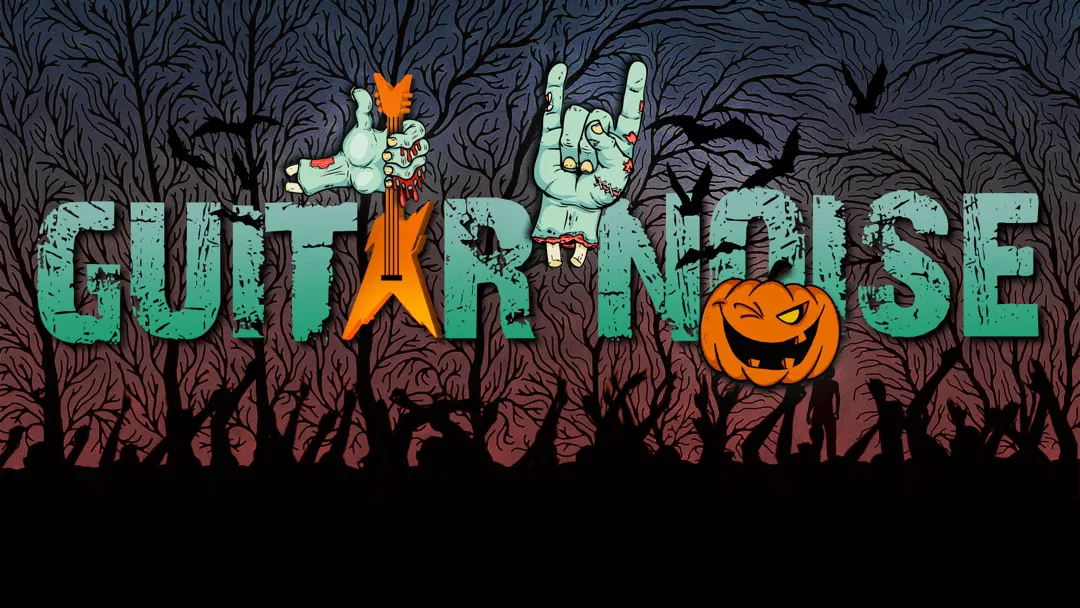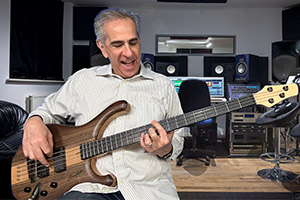How theory helps you play and write better music
You’ve probably heard before that music theory is a ‘good thing’ to learn. But how exactly does it help us play better music? There are many, many ways theory can help us. The most common reason you’ll hear is that it can help you understand how music is constructed. But in this article, I want to explore two slightly different aspects and discuss how theory can help you improve your playing by exploring melodic building blocks and how it can help you write (better) songs.
Exploring Melodic Building Blocks with Theory
When you learn a new language, you start by picking up words and phrases naturally, just from listening and copying. It’s a great way to get started, but there comes a point where you want to express more complex ideas. Where it’s helpful to understand what you’re actually doing, so you can eliminate mistakes and explore new options. That’s when learning grammar—the rules and structures behind the language—opens up new possibilities.
You can think of learning music theory as getting a grasp on the “grammar” of music. By learning more about theory, you can go beyond what you already know how to do. You can explore ‘phrases’ you’ve never played before, making you a more versatile musician.
As an example, let’s explore what scales can teach us. Just like grammar shows us how we can conjugate verbs, we can ‘conjugate’ scales as well. First, grab any scale and play it up and down, just to get used to it. So:
1 – 2 – 3 – 4 – 5 – 6 – 7
Next, try playing it ‘in intervals’. We’ll start by playing the scale in thirds. So, referring to the scale degree numbers, that would be:
1 – 3 – 2 – 4 – 3 – 5 – 4 – 6 – 5 – 6 – 8 – 7 – 2 – 8 – 3
We can do this for every other interval as well. Here’s a clip of jazz guitarist John Scofield demonstrating this:
(Notice that even Scofield makes some mistakes every now and then as he demonstrates this exercise. Seems he hadn’t practiced this in a while himself!)
Next, you could make patterns of more than two notes. So pick a sequence of a few intervals, like a little melody, and play that through the scale. As you might imagine, this exercise requires you to know the specific notes of the scale quite well, because you are ‘adapting’ a melody to it. Perhaps you’ve already internalized the scale with the previous steps, but if not, this is a great puzzle to figure out. By practicing this, you create melodic building blocks you can use and recognize in all music. You have them prepared. Now you can use and connect these building blocks to play phrases you’ve never played before. That means ‘grammar’ in music can also help you create the words, instead of just ordering them into a proper sentence structure.
Of course, this is just a tiny fraction of how we can use the theory of scales to inspire us and to explore new paths. And we haven’t even started talking about other topics like triads, arpeggios, the CAGED system, pentatonics, etc. There are many more building blocks to play around with. Music theory helps you identify and practice those building blocks, making you better prepared for any musical situation.
How theory helps you with songwriting
If you’ve ever tried to write a song, you’ve probably run into this problem: you find a nice musical idea by just playing around. But then you don’t know how to make it into a song and get stuck. Instead of finishing it next time you pick up your instrument, you find another idea that has nothing to do with the previous one.
Coming up with those initial ideas requires inspiration. But developing and finishing them requires craft. And for you to be adept at your craft, it’s useful to be knowledgeable about it. Think of it as a carpenter making a table. It’s of no use to find a beautiful piece of wood for a tabletop (idea) without knowing how to turn it into a solid table (craft).
It’s the same with composition. If you have a great idea, you need to work on the framework around it to make it thrive. I’m not saying this is impossible without theoretical knowledge. But if you’re stuck, and let’s face it, we all are sometimes, theory can help you break through the blockade. To start with, if you identify the key of the initial idea, you can make choices about whether you want to stay ‘close to home’ (inside the key) or go ‘further away’ (outside the key).
Knowing the key also allows you to use the game of tension and release in your chords. We call this functional harmony. You can set yourself assignments. For example, start on a certain chord in the bridge, and then try to write four ways of getting the harmony back to the chorus. You can do this by feeling or by ear, which requires inspiration. But you can also use theory to find solutions to your assignment. What you come up with doesn’t always have to be beautiful. If you find just one chord you love through this theoretical approach, you’re already closer to finishing the composition than before you set yourself this assignment. In other words, theory can lead you to the inspiration you need to finish your song.
How theory helps with much more…
In this article, we discussed just two ways that theory can help you. Both as a player and as a songwriter, it can help you express yourself. No matter if you’re a guitar player, a pianist, or learning violin. Of course, we’ve only scratched the surface with this! Overall, theory can help you gain a deeper understanding of music. This can also increase your enjoyment of music as a listener. If you know music theory, it’s easier to follow the games of tension and release, you will be able to recognize and enjoy spicy chords, or if you did a deep dive into rhythms, you’ll be more aware of what’s going on in that department… By knowing what is going on, you’ll be able to follow a musical story in more detail. It helps you follow the choices your favorite artists are making. So in that way theory develops your ears as well. This will lead to you being able to listen in ‘hi-fi’ and to dig deeper into the music you love.



